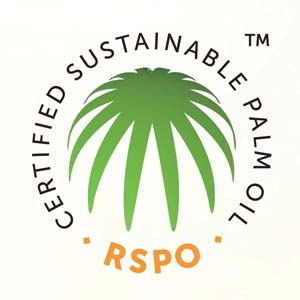



Multiple palm oil certification schemes
February, 2017 in Issue 1 - 2017, Sustainability
A viable solution
The lack of cohesion and coherence within the palm oil value chain is resulting in unnecessary pressures on oil palm growers and processors. Each sustainability scheme includes different specific conditions that must be met in order to attain certification.
Although there are some areas of overlap, there are significant differences in the areas covered by each scheme, and in the level of traceability and transparency. Operators must choose which standard, if any, provides the best value; but in some cases, especially with smallholders, many certification schemes are too costly.
Some schemes are also more relevant to certain industries, such as the ISCC scheme, which is more relevant to palm oil that is used to produce biofuel. However, farmers provide bulk quantities of palm oil. So, they must be able to satisfy a wide range of schemes if they want to sell palm oil to a sustainable biofuel producer as well as a sustainable food manufacturer, depending on which certification each purchaser uses.
Although RSPO certification is the most widely used, its global membership of 3,000 includes actors throughout the palm oil supply chain. Many of them have interests that conflict with those of oil palm growers and palm oil producers.
In some cases, the marketing materials and product packaging of certain RSPO members even incredibly advocate against the use of palm oil through the use of controversial and arguably illegal ‘Palm oil-free’ or ‘No palm oil’ labels. Such campaigns and labels significantly influence public opinion and consumer choices against palm oil.

Conversely, national-level standards such as the ISPO and MSPO are realistic and properly account for the plight of small- and medium-size enterprises. In addition, with over 80% of the market for palm oil production, Indonesia and Malaysia hold the power and understanding to shape the industry and its perception, if they wish.
Indonesia and Malaysia have already increased cooperation with the establishment of the Council of Palm Oil Producing Countries (CPOPC), but concrete actions must be pursued. A regional/international standard of palm oil sustainability must be developed, possibly first regionally and then globally at the multilateral level.
An example lies in the chocolate industry. The International Organisation for Standardisation (ISO) is in the process of reviewing a series of new standards (ISO 34101) on sustainable and traceable cocoa beans. There, the standard was originally developed at the regional (European) level, before being proposed as a Draft International Standard before the ISO.
Without any such regional and international agreement on sustainability standards in the palm oil industry, additional schemes will continue to develop, adding costs to businesses and confusion among consumers.
To get there, the world must rely upon the expertise and experience of countries such as Indonesia and Malaysia, which must drive the process within the CPOPC and then internationally. A reasonable standard that accounts for all levels of production can be achieved and will help the industry grow in a responsible and sustainable manner.
FratiniVergano
European Lawyers
Pages : 1 2